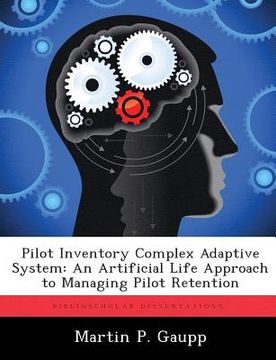Share
Pilot Inventory Complex Adaptive System: An Artificial Life Approach to Managing Pilot Retention
Martin P. Gaupp
(Author)
·
Biblioscholar
· Paperback
Pilot Inventory Complex Adaptive System: An Artificial Life Approach to Managing Pilot Retention - Gaupp, Martin P.
Choose the list to add your product or create one New List
✓ Product added successfully to the Wishlist.
Go to My Wishlists
Origin: U.S.A.
(Import costs included in the price)
It will be shipped from our warehouse between
Friday, July 26 and
Friday, August 02.
You will receive it anywhere in United Kingdom between 1 and 3 business days after shipment.
Synopsis "Pilot Inventory Complex Adaptive System: An Artificial Life Approach to Managing Pilot Retention"
The retention of skilled pilots continues to be a problem that plagues the United States Air Force. After spending millions of dollars on training and education, it is disheartening to see the mass exodus of experienced aviators from the Air Force that has been occurring in the past decade. Many blame the economy, others the Air Force itself, but few are able to accurately predict how or why they are all leaving. The current personnel models do not adequately determine retention rates. Complex adaptive systems theory, however, might provide some insight. By modeling the system at the pilot's level, allowing each pilot to be represented as an autonomous, independent agent continually adapting to its environment and the other agents in it, an alternate model can be built; one that accounts for the interactions among the pilots, not just their interactions with their environment. PICAS (Pilot Inventory Complex Adaptive System) is just such a model. Constructed in the Java language, the PICAS model exploits the notions of complex adaptive systems theory and employs dynamic user controls to discern retention rates. Pilots 'evolve', for lack of a better word, to a greater fitness within their environment, and in the process the model user can better determine what kind of environment needs to be created and maintained in order to ensure that trained and experienced pilots are in fact retained for their services. This thesis will discuss the theory underlying the PICAS model, trace the development of the PICAS model, review the descriptive results the model produces, and finally investigate the uses of the model as a tool for exploratory modeling.
- 0% (0)
- 0% (0)
- 0% (0)
- 0% (0)
- 0% (0)
All books in our catalog are Original.
The book is written in English.
The binding of this edition is Paperback.
✓ Producto agregado correctamente al carro, Ir a Pagar.

